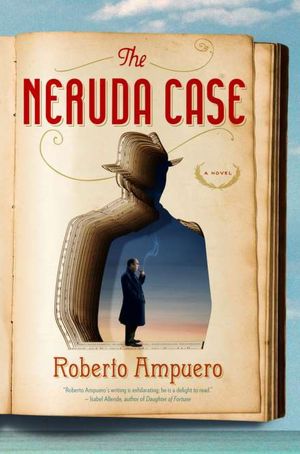Baker, Birdwatcher
In nature writing, it’s not uncommon for “the ever-changing dividing line between the animal and the human,” or something similarly abstract, to be a central theme throughout a book, or at least something that critics and reviewers like to write about. To say that 20th century English writer J.A. Baker wanted to be a bird is neither metaphorical nor hyperbolic. He quite literally wanted to be a peregrine falcon.
Essex-born J.A. Baker wrote two books during his life: The Hill of Summer and The Peregrine. The Peregrine, though still relatively unknown apart from dedicated followers of nature writing, is, predictably so, about peregrine falcons. It is a culmination of 10 years of following these birds around the East Anglian region of England, condensed into a book that is supposed to take place in the span of six months.
What type of person writes such a powerfully haunting book? More immediately, what type of person has the time to follow around falcons for ten years? When The New York Review of Books printed the long-since out of print book in 2005, it was speculated before that Baker was a librarian, following in the footsteps of fellow East Anglian and 18th century eccentric Sir Thomas Browne. It was later revealed that this was the wrong J.A. Baker. Being a member of the English landed gentry or a groundskeeper would also have made sense, if only for the fact that it would have explained the immense amount of time he seemed to have on his hands. The answer is far less interesting and far more conventional: before dying from cancer that was a result of the medicine he took for worsening arthritis, he worked for a beverage company, and before that, the Automobile Association. In spite of this, he couldn’t drive. This meant that his birdwatching habits were confined to where he could ride his bicycle.
Eccentricity aside, it is primarily because of the intensity of Baker’s sentences that his book has endured among this generation’s British nature writers. The way he describes the birds he follows is, for lack of a better term, inhuman. Describing the death of a pigeon, he writes, “one bird fell back, gashed dead, looking astonished, like a man falling out of tree. The ground came up and crushed it.” Elsewhere, in pursuit of a particular falcon, Baker asserts that he “hides in his own stillness.” As Mark Cocker points out in the introduction to The Peregrine, a fair amount of what he suggests throughout the book is at odds with the scientific consensus about these birds. They are not known to hover, nor are they thought to be able to break earth in pursuit of worms. Likewise, the amount of peregrines that Baker claimed to see at a time when the bird was on the brink of extinction is nothing short of absolutely remarkable.
Language is infinitely malleable for Baker, and there is a general disregard for the difference between conventional verbs and nouns. At times, though, The Peregrine is anything but opaque in its disregard for, well, people in general. To Baker, “[humans] are the killers. We stink of death. We carry it with us. It sticks to us like frost. We cannot tear it away.” In other places, Baker uses “we” to refer to falcons: “We live, in these days in the open, the same ecstatic fearful life. We shun men. We hate their suddenly uplifted arms, the insanity of their flailing gestures, their erratic scissoring gait, their aimless tumbling ways, the tombstone whiteness of their faces.” I’m tempted to ask where this inspiration comes from; how somebody who held such conventionally boring jobs was able to speak of birds with such muted intensity. Without The Peregrine, Baker the birdwatcher would have disappeared without a trace. Even so, the book has resurfaced primarily because of the NYRB edition and because of prominent English nature writer Robert Macfarlane hailing this book as a “masterpiece of 20th century nonfiction.”
Baker adopted such a funereal tone precisely because he thought he was writing the falcon’s own elegy. The pesticide DDT had ravaged bird populations in both the USA and the UK, and between 1939 and 1962, 50% of the peregrine population in Britain had died, and a significant portion of the remaining falcons were not rearing chicks. Rachel Carson’s Silent Spring was published in the U.S. just five years before, and chronicled at length the catastrophic effects mass pesticide use had on birds and the environment more broadly. Although peregrines in the UK have since rebounded, Baker thought the peregrines were doomed and was writing accordingly. Baker, too, was doomed. He had rheumatoid arthritis, and would eventually die from complications from the medicine he was taking to treat the debilitating disease.
Baker’s personal life is not interesting for what it contained, but for what it lacked, for what it failed to reveal about his work. His life and his writing are shining examples of the need for an inner life that contemporary writers like JM Coetzee are concerned with, about the capacity for a total disjuncture between the banalities of daily life and one’s passion. The Hill of Summer is equally precise in its observation, but the The Peregrine endures because it is obsessive and beautifully intense. Baker’s wife died in 2006, so what readers know about him now is likely all readers will ever know. Maybe that’s not such a bad thing.


